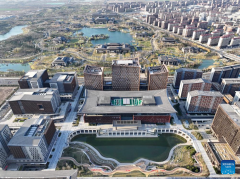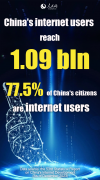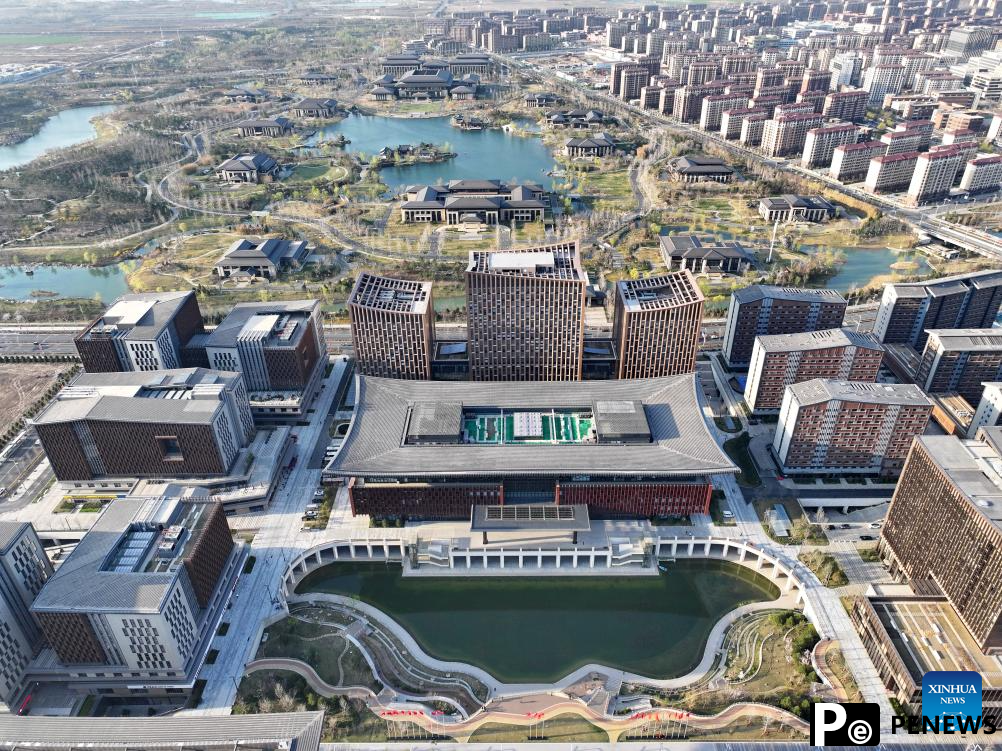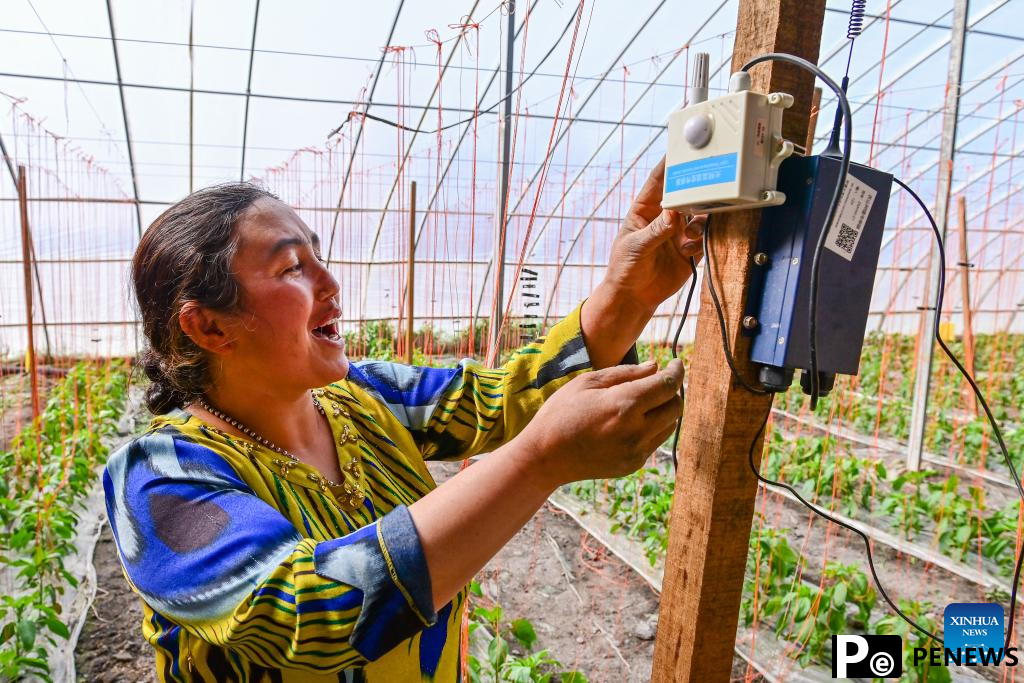Home>>
Construction of China's smart customs enters phase of comprehensive implementationBy Wang Junling (People's Daily) 15:02, March 22, 2024
As the customs of the world's largest trading nation in goods, the Customs of China inspects the largest volume of goods each year, with the most diverse scenarios and most comprehensive modes.
The construction of China's smart customs has entered a phase of comprehensive implementation this year, and the General Administration of Customs of China (GACC) will build nine landmark projects to make customs supervision services more intelligent and automated, said an official with the GACC at a regular press briefing recently.
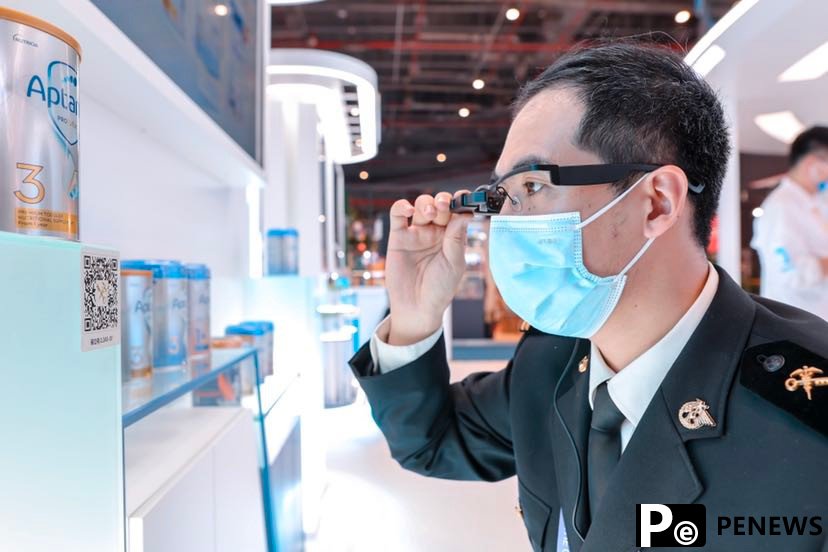
The Shanghai Customs for the first time launched inspection for exhibition halls and exhibits with new technologies such as augmented reality (AR) goggles and digital tags during the fourth China International Import Expo in 2021. Photo shows a customs officer checking the information of a milk powder product with AR goggles. (Photo from the official account of the publicity department of the Pudong New Area of Shanghai on WeChat)
In recent years, the rapid development of new technologies such as big data, cloud computing, artificial intelligence, and the Internet of Things has provided new ways and means for customs supervision services, offering strong technological support.
"We will continue to strengthen and explore the application of technological innovation in different customs scenarios," said Chen Zongwang, deputy head of the Department of Science and Technology of the GACC, adding that the construction of smart customs will fully leverage the guiding and supporting role of technological innovation.
For example, through intelligent image recognition, various goods can be identified, which will enable a 24/7 working mode, reduce frontline pressure, and enhance port targeted supervision capabilities.
Additionally, intelligent trademark recognition technology for intellectual property rights can quickly search trademark information in the intellectual property rights filing system online, thus identifying infringing trademarks.
In recent years, the GACC has been continuously promoting digital transformation and intelligent upgrading, optimizing regulatory services and supporting the construction of the international logistics system.
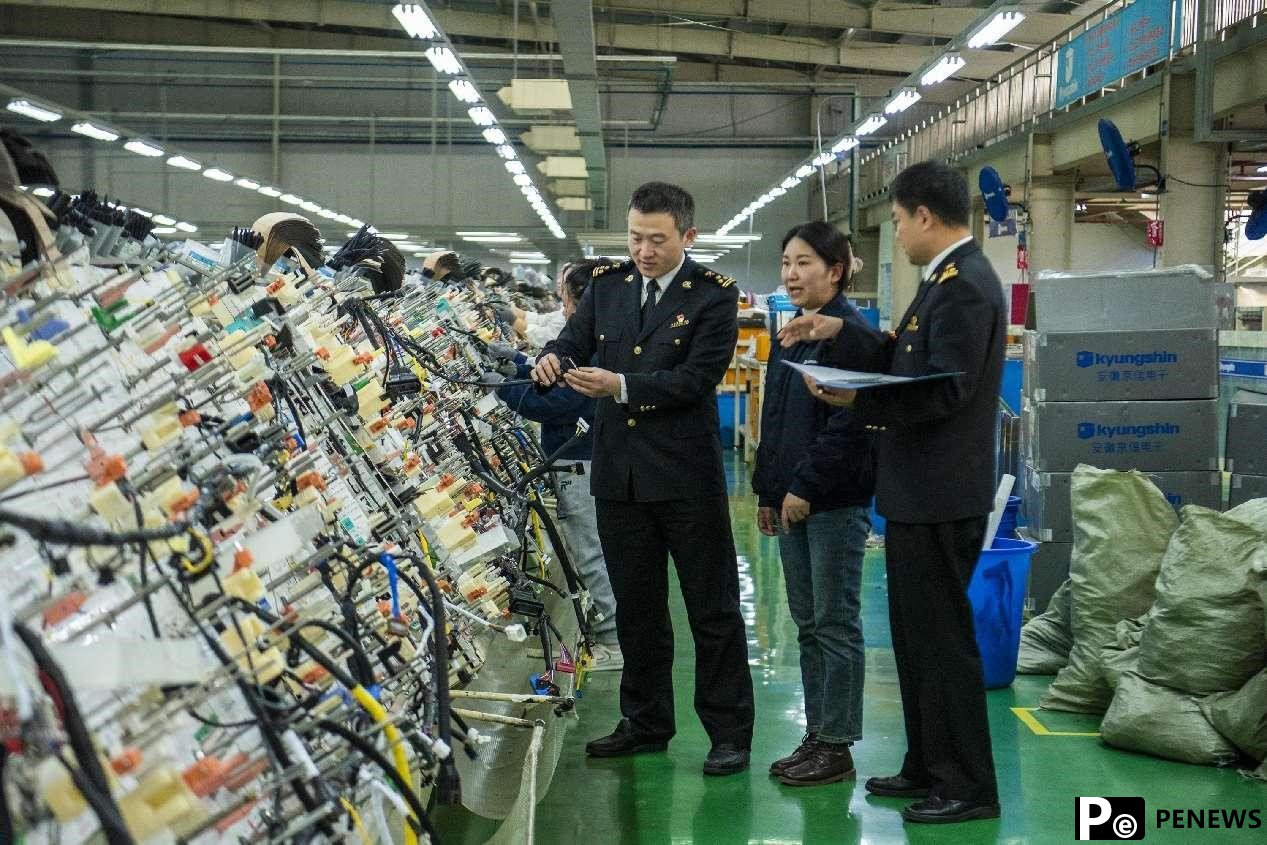
Customs officers of Huaibei, east China's Anhui province launch inspection in a workshop of a local company. (People's Daily Online/Xiao Benxiang)
Du Hongwei, deputy head of the Department of General Operation of the GACC, noted that the GACC will focus on three main areas of work in order to further promote high-level opening-up.
Firstly, the GACC will strengthen bilateral and multilateral cooperation. It will collaborate with the World Customs Organization on a "smart customs" project, actively promote a smart customs partnership initiative within the Asia-Pacific Economic Cooperation framework, and deepen institutional cooperation on inspection and quarantine with customs of neighboring countries such as Central Asian and ASEAN countries.
It will also promote the electronic origin networking with members of the Regional Comprehensive Economic Partnership and expand international cooperation on mutual recognition of AEO (Authorized Economic Operator) status.
Secondly, the GACC will serve high-quality Belt and Road cooperation. On one hand, it will expand the connection with international trade single windows and promote cooperation between China and Belt and Road partner countries in this area. On the other hand, it will further support the establishment of efficient international logistics corridors that are compatible with new production and logistics methods, and facilitate the coordinated development of international logistics corridors such as the China-Europe freight train service, the new western land-sea corridor, and the China-Laos Railway.
Thirdly, the GACC will facilitate the construction of high-level opening-up platforms. The administration has been actively exploring and designing intelligent solutions to the innovation of regulatory systems and the application of advanced technologies, focusing on the development of opening-up platforms including the Hainan Free Trade Port, the Guangdong-Macao In-Depth Cooperation Zone in Hengqin, comprehensive bonded zones and pilot free trade zones. It will continue to unleash the dividends of reform and contribute to the advancement of high-level institutional opening-up.
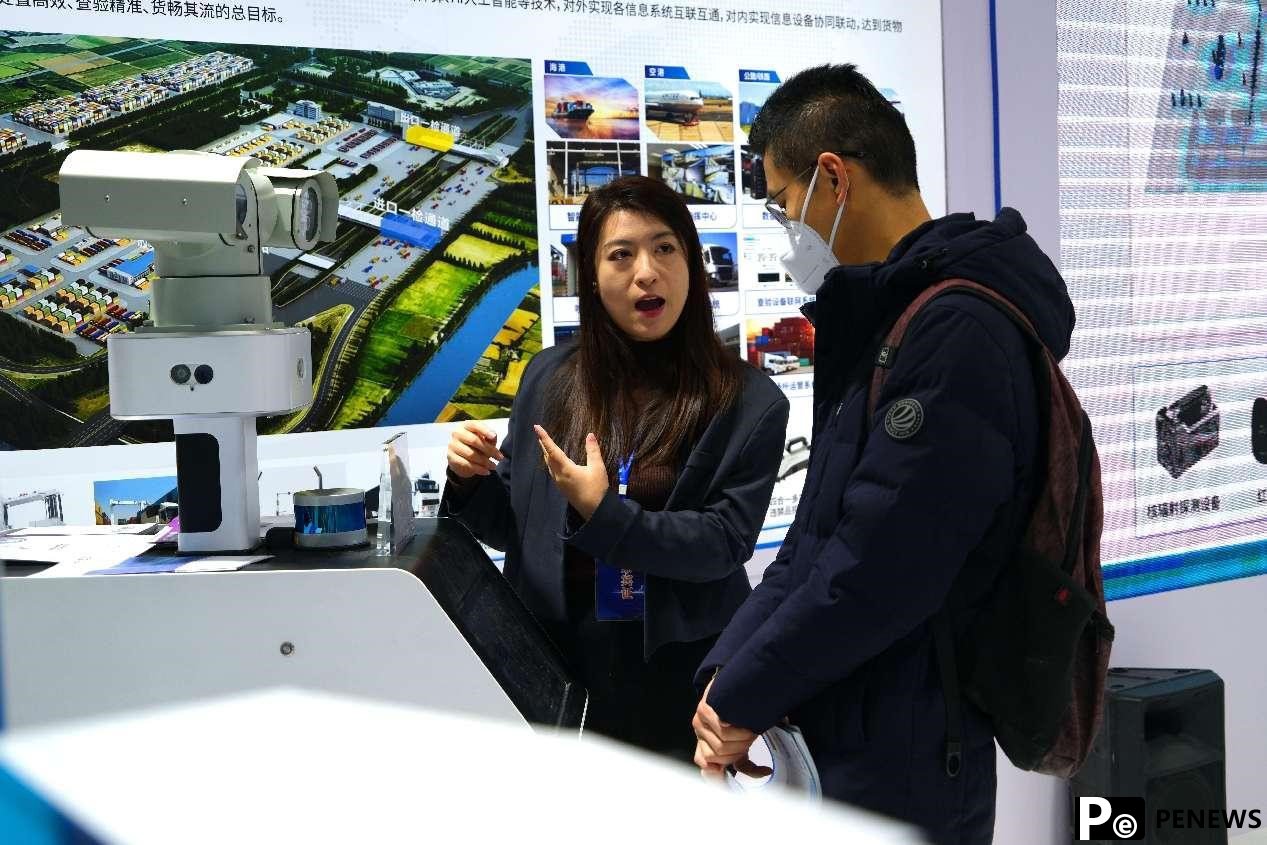
A visitor learns about artificial intelligence products at an expo on smart customs clearance held in Beijing, Nov. 26, 2023. (People's Daily Online/Guo Junfeng)
Promoting the construction of smart customs helps reduce trade costs and facilitates the clearance of personnel and goods. Currently, customs clearance in China is becoming smarter and smarter.
